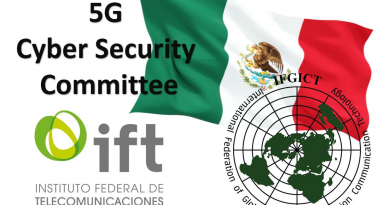What Makes a Great Messaging App?
A decade ago people relied on ordinary mobile phones with limited functionality to communicate. These early devices could only make and take calls and send and receive messages. SMS provided basic texting but could be expensive and involve monthly limits. The world of phone communication has changed radically over the last ten years. The technology of mobile phones has advanced at an incredible rate, and you now have phones with amazing capabilities. Furthermore, to enhance the functionality of your smartphone, there are countless messaging apps you can download that provide dynamic ways to communicate with friends, family, or work colleagues.
Far more popular than SMS texting, messaging apps are a huge trend these days. Thanks to the power of chat API, you can send multimedia messages, video chat, share files and photos, receive push notifications, and many other things. Popular messaging apps are simple to install on all types of phones and are compatible with iPhone, Blackberry, and Android. Many apps can be downloaded for free or offer a free trial. There are also many communication providers who provide the software tools (chat APIs and SDKs) to custom build your own chat apps.
But what exactly makes a great messaging app? Let’s take a look at some of the most popular messaging apps on the market for a better understanding.
Popular messenger apps
There are four messaging apps that dominate the market, WhatsApp, Facebook Messenger, Telegram, and Snapchat. They are all cross-platform apps that are free to download and are packed with features.
WhatsApp is the leader of the pact with a user base of 1.5 billion. In addition to instant messaging, it allows you to send video and photos, as well as provides free video and audio calling. Facebook messenger requires you to have a Facebook account and login. Its main advantage over WhatsApp is that there is no limit to how many videos and pictures you can send. On the other hand, unlike WhatsApp, it doesn’t allow you to share contacts.
Telegram has a growing user base. Users have to add or accept contacts before messaging, that way strangers cannot contact you with unwanted messages. Another unique feature to this app is its built-in browser, which means that you don’t need to leave the app when you open links and websites.
Among a younger audience, Snapchat has become highly popular. This app offers a number of unique, quirky features that make it stand out. Firstly, it provides fun real-time special effects and sounds that allow you to alter video and images. Second, it allows you to send texts or photos that disappear after being opened.
Features of great messaging apps
From these trending messaging apps it’s possible to identify some key features that make for great messaging apps. These features include:
- Attractive pricing (these apps are free to download)
- Different communication channels that include one of more of the following, instant one-on-one chat, group chat, video chat, and audio calls.
- The ability to share pictures, videos, memes, stickers and other types of files
- The possibility for other quirky features like special effects, drawing on images, text messages that self destroy, etc.
- Easy sign-ups and logins, and ability to sync with mobile phone contact list
- The convenience of an inbuilt browser
Limitations with popular messaging apps
However, there are some drawbacks to these messenger apps as well. For social messaging and communicating with family and friends, it’s easy to find an app that works, but increasingly messenger apps are being used in the workplace to communicate with colleagues or customers. This is where you can run into trouble.
One key problem is the issue of security. Popular mainstream apps make different claims about how secure chat and user data remains on their platform, but the fact remains that this data is stored and owned by a third party, which can leave businesses vulnerable.
WhatsApp was recently fined 225 million euros for violating GDPR data protection rules. HIPAA (Health Insurance Portability and Accountability Act of 1996) imposes hefty fines if PHI (protected health information) is leaked. Therefore it’s essential that mainstream messenger apps are not used by organizations or individuals providing healthcare services.
Building your own messenger app
The need for secure messaging means that many businesses and organizations choose to build their own messenger app. There are many communication providers who offer Chat API that enables businesses to easily integrate real-time communication features into their website or business app.
There are other advantages as well to building your own messaging app. You can custom-make the app to meet your specific use case, choosing only the feature that you need. You can also brand the app with your company name, logo, and color. You can choose which cloud service to host the application, and it can be in your own dedicated infrastructure, which will boost the security and performance of your app. Most importantly you will remain in control of all your customer data and chat history.
So what makes a great messenger app?
To answer this question, it really depends on what you plan to use the app for. If it’s for easy and fun conversations between friends and family there are a plethora of messenger apps to choose from. However, if you are planning to use the app for business communication, or to chat remotely with customers, or patients, then you need to seriously consider security concerns. Will user data be adequately protected? Building your own app, using third party Chat API, allows you to build secure communications and create a business messaging app that can enhance your brand and build customer trust.




